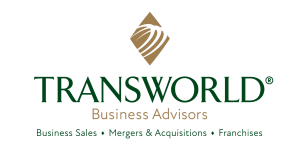
 Ron and Sue Rescigno, VP of Rescigno’s Fundraising Professionals.
Ron and Sue Rescigno, VP of Rescigno’s Fundraising Professionals.
A colleague, after reading Ron’s blogs and newsletters, once said, ” He is a person I would like to have a glass of wine or beer with. His literary voice is approachable, friendly, and has a Chicago southside feel to it. His style of writing is both unique and inviting.” A great compliment when you consider that Ron doesn’t drink and isn’t originally from the south side of Chicago.
His new book, Fatal Fundraising Flaws,” has been written for fundraising professionals who know they’re leaving money on the table.
Ron has helped nonprofit organizations grow their base of support for over 33 years. It is Ron’s hope that his new book will help nonprofit organizations raise more money so they can do even more good in the world.
He is known as a thought leader for nonprofits who seek new and creative ways of appealing to their constituents. Ron holds a BA in English from Lewis University and an MA in Educational Administration from Governors State University.
Sue spent the early years of her professional career in development at prestigious educational institutions such as Illinois Institute of Technology and St. Xavier University. During her tenure at IIT, she won awards from Council for Support of Education (CASE) for Sustained Performance in the annual fund.
Her degree is in Mass Communications from St. Xavier University. In 1992 she started Rescigno’s in her garage because she saw a need for the services RMS offers. The business has continued to grow and has helped more than 700 nonprofits achieve their fundraising goals.
Follow Rescigno’s on LinkedIn.
What You’ll Learn In This Episode
- Why some nonprofit’s fail
- What role does communicating with donors play in getting donations from individuals
- If an individual makes a gift of support to a charity organization what does he have the right to expect in return
- Is it a good idea for nonprofit organizations to describe what they need from donors
- Does direct mail still have a role to play in raising money
![]() This transcript is machine transcribed by Sonix.
This transcript is machine transcribed by Sonix.
TRANSCRIPT
Intro: Broadcasting live from the Business RadioX studios in Atlanta, Georgia, it’s time for High Velocity Radio.
Lee Kantor: Lee Kantor here another episode of High Velocity Radio, and this is going to be a good one. Today on the show we have Sue and Ron Rescigno and they are with Rescigno’s Fundraising Professionals. Welcome.
Ron Rescigno: Thank you. We’re glad to be here.
Sue Rescigno: Hi, Lee.
Lee Kantor: Thank you. Well, I am so excited to learn what you’re up to. Tell us about your firm. How are you serving folks?
Sue Rescigno: Okay, sure. So Recinos has been in business for over 33 years. We started actually out of our garage and as a direct mail communications office for nonprofit organizations, and we have grown to be a full service consulting firm for nonprofits, helping them raise money to do great things in the world.
Lee Kantor: So was your backstory that both of you were involved in nonprofits.
Ron Rescigno: Actually? Um, yes. That is our backstory. I was involved in Catholic high school education for 23 years, first as a teacher and then as an administrator, and Sue has worked at um. Several nonprofit organizations write.
Sue Rescigno: In fundraising and development.
Lee Kantor: So you mentioned that you’ve been doing this for several decades now. How has kind of the landscape changed when it comes to fundraising for these nonprofits?
Sue Rescigno: Wow, it’s changed a lot. Well, what’s interesting that we’ve been since we’ve been in it so long, we’ve seen the different trends and and we’ve gone through the, you know, the recession. Um, where okay. So how did that how did the recession really change? Nonprofit fundraising. It changed it in terms of people were doing like they were sending out to the masses of people, so they were communicating with maybe 50,000 people, asking them to support their organization. And they were doing beautiful, like brochures and really flashy things when the recession hit. The donors said, please don’t spend so much money on that, so be smarter about it. So what we did at Recinos was we started targeting. So we do a lot more with data, like who are you communicating with and why? And so we research that before we ever send anything out. And then the pieces are simple. They are they are simple solicitations, um, like an eight and a half by 11 letter. I’m sure you get these. They’re appeals from your college or nonprofits that you are, um, connected with. And so like that change happened during the recession and then things started to come back. Um, and people started doing, uh, fancy brochures and things like that again. And then the pandemic hit and we went right back and something interesting that I just want to throw out here is that direct mail fundraising is still the number one source of finding new donors. Everybody thought email was going to change that and it never did. And that was proven during the, um, pandemic. So yeah, that’s just one interesting trend.
Ron Rescigno: And that’s what we have specialized in for these past 33 years that we’ve been in businesses, direct mail, fundraising. We’ve, um, begun a transition into helping organizations with capital campaigns now, major gifts and mentoring and coaching. But it’s it’s still that one on one piece that you get in the mail that gets the best response.
Lee Kantor: Now, I, um, in my business, I interview businesses and nonprofits and a variety of industries and sectors and the nonprofits I find they lean on, like galas as their big fundraising. What’s your take on that?
Ron Rescigno: So. So, uh, it’s it’s very interesting because, um, the galas are great things for a lot of organizations. They raise a lot of money. But when you when you kind of measure that against the time that it takes to put the time and the, uh, the physical time as well as the, the emotional time that it takes to put one of those events together. We often say, why not target one of your best donors or a couple of your best donors and ask them for a specific amount that you expect to to raise from from a gala and avoid all that. In my opinion, unnecessary work that you could be spending on creating more relationships with more donors.
Sue Rescigno: Yeah, if I could just add to that, I think that, um, it’s good for cultivation. It’s good to keep your donors connected to each other, bring everybody together. But I agree with Ron. The work that’s put involved in them, you’re much better sitting sitting down with a donor and ask them, asking them for $100,000 gift than trying to put all that work and staff into a gala.
Lee Kantor: That was my instinct as well. It seems like the galas are a lot of work, a lot of headache, but it just seems that that’s the go to move for so many of these folks is I got to put this thing and all of a sudden they’re become event planners, and then they got to go out and get silent auction things. And like, everybody is doing things that they’re not like, great at, and they’re begrudgingly doing it in the hopes that at the end of the day, when they look at the numbers, it’s like you said, couldn’t we have done something else that’s more efficient use of all of our times and talents?
Sue Rescigno: Right. And you’re.
Ron Rescigno: Exactly right.
Sue Rescigno: And that’s why we we work a lot with our clients data. So looking at the data and examining like, um, who you have in your database. So are they candidates for an annual fund gift? You know, maybe a gift of $5,000 or less, or are they candidates for a larger gift? And then you can develop major gift campaigns. And maybe you have are having small little events, maybe like where you have your major gift, people coming to have dinner with your president or dinner with your executive director or a breakfast or something like that. That type of event with major gift prospects is very important.
Ron Rescigno: The kind that’s much more focused.
Sue Rescigno: Exactly.
Lee Kantor: So part of the strategy in your model is obviously sending direct mail and direct communication with a select audience of your kind of superfans. How do you help your organizations build that list to begin with, to get people in that funnel so they can solicit them at some point?
Sue Rescigno: Right. So it all depends. So you always start with the list that they already have. So what we normally find is that a client will have a list of. It could be ten, 20, 25,000 or more um in their current database. But they only communicate with a certain number. Right. So our question is always like, well, who are those people on your list? So you would always start with the current list. Um, and then there are ways to add to your list by working with your board. Um, getting names to put on your list. Um, uh, doing kind of a friend raising thing. There are acquisition, you know, purchasing lists. You can buy lists that, um, you can acquire lists of, um, people that look like your current donors. So you do a profile of your current donor, and then you buy a list of people who look like that. So and you do that gradually, um, because that costs a lot. But normally, you know, people should be mailing to at least 5000, um, and then they want to add maybe 2500 per year. They, they add people, they take people off. But that’s how you maintain the list.
Lee Kantor: But how do you build the list from scratch? Like, say you’re a new or, uh, you know, an emerging nonprofit? How do you kind of get up to that 5000? Is it through kind of the initial board and you just kind of build it, you know, individual by individual?
Sue Rescigno: Yeah. Um, yes. And if you’re a brand new nonprofit, I would suggest purchasing a community list and people within your community. I always tell organizations that it’s it’s, um, people are happy that nonprofits exist in their area. Um, so and and but they need to be aware of what you’re doing. So in the beginning and getting that list, um, you’re, you would acquire a community list.
Lee Kantor: And then once you have that kind of at least a minimum number, you’re saying, I think I heard you say around 5000 is kind of the number you need in order to kind of start working that list to get the results you’re going to want.
Ron Rescigno: Exactly.
Lee Kantor: And then is that the ideal, um, client for you, somebody who has a list already of at least 5000?
Sue Rescigno: Well, yes, that would be ideal for us. Um. However, we also work with, um, clients that are much larger, um, that already have their list. And sometimes, um, many times, um, clients will come to us because their program is stagnant. Um, and we find that there are basic fundamentals that people need to be following. And like one of the things that is really important is that you’re not only asking and soliciting, um, gifts, but you’re also, um, uh, sharing information with them. And you want to talk about like, impact. And.
Ron Rescigno: Yeah. So, so one of the big things that we, we really focus on and try to impart to our clients is that when you send out a solicitation letter, it the letter should be what we call donor focused or donor centered. And by that I mean it should not. The letter should not be about how great your nonprofit is. And look at what we’ve done in the last six months or the last year. And and that’s why we’re worthy of a gift from you or an increased gift. Rather, it should be. Look at the opportunity you have as a donor to make an impact in the world. You have an opportunity to to really make a difference and tell stories that kind of reflect on that difference that a donor or a potential donor can make. And when donors see that there is a need to help someone rather than to help an organization. It’s to help someone who would benefit from what the organization does that gets them to open their pocketbook.
Lee Kantor: So they like to see kind of where their money’s going and what kind of impact it’s making, not just, hey, give to our cause because we’ve been around for 150 years.
Ron Rescigno: You hit it right on the head. That’s exactly what we we try to to talk with our clients about all the time And, you know, uh, there is, uh, the tendency is to want to talk about, look at what we’ve done. And this is why we deserve your support. And there is a place for that, for example, in a newsletter or um, um, a an impact report, but in a, in a letter where you’re asking for a gift of support, it should be about how the gift can make a difference in someone’s life. Who who the organization is, uh, says in their mission that they’re trying to help.
Lee Kantor: Now, you mentioned nonprofits, obviously, as kind of your sweet spot. Is there a niche within nonprofits? Is it medical? Is it, uh, business associations are there, you know, are they health related? Are they community related? Like what’s what’s a good nonprofit for you and what’s not?
Ron Rescigno: Well, probably one of our top, one of the top, um, niches is, uh, educational institutions. We work with, um, several community colleges across the country, a health care organizations. We work with hospitals, religious organizations, um arts and culture, um, animal welfare organizations to name. And museums which would fall under the arts and culture. Uh, just to name a few.
Lee Kantor: And then, uh, I mean, talking to you just for these few minutes, you can see there’s a wealth of knowledge, but you’ve kind of documented some of this knowledge in a new book, Fatal Fundraising Flaws.
Ron Rescigno: Yes. Thank you. I’ve, uh, I wrote the book and, uh, actually, it, uh, the launch of the book was about a month or so ago, and, uh, it’s available on Amazon. And what I do in the book is I talk about mistakes. Common mistakes, um, in many cases, simple mistakes that nonprofits make that cause them to not get funded, not have the revenue coming in that they they deserve to have, that they should have. And I offer solutions to, um, to to fix those mistakes. One of the most common mistakes is nonprofit organizations do not invest in their fundraising program. They don’t put enough money into the program in terms of resources, in terms of the technology that’s needed today to to really, um, do well and in terms of staffing their fundraising departments. Uh, the more you, you staff and the more technology you use to your advantage, the more, um, support you’re going to receive.
Lee Kantor: Now, is there a story you can share? Don’t name the name of the group, but maybe share the problem that they came to you with and how you were able to help them get to a new level.
Ron Rescigno: Um. Let me.
Sue Rescigno: Oh. Oh, sure. Yeah. That one. Okay, so, um, yes, I can share this. So, uh, we work with a very well known, um, national organization that, um, came to us. Um, they raise their religious organization and they raise a lot of money every year. And they were just stuck. It was just stagnant. And the thing is that they had been doing it the same way every year and never examining it. Okay. By that, I mean, um, they had a good program. Um, but they weren’t analyzing everything. So when we asked them about the analysis and how it compared to the previous years, um, we could see that, um, it was just stagnant. And so we asked them, um, they weren’t getting their acknowledgment letters out in an appropriate time. That’s a huge thing. So that there’s a cycle of you have to ask for a gift, whether it’s a large gift or it’s a it’s an annual fun gift. If it’s a major gift or an annual fund, you have to ask for the gift. You have to acknowledge the gift in a timely manner. You have to share the impact, and then you have to ask again. And so normally when clients come to us with a um, issue, it’s that they’re missing one of those steps. And a lot of times it’s the acknowledgment or sharing the impact. They’re good at asking, but they’re not sharing enough other information with the, um with the donors.
Ron Rescigno: Does that or or there are organizations that maybe aren’t so good at the asking part because they are reluctant to ask too often. And that’s a real myth when it comes to fundraising. Is that, um, all we we already asked that particular donor, uh, six months ago, and we received a gift from them. We don’t want to ask them again for another gift until a full cycle of a of a year has gone by. And what our research tells us time and time again is that if you have a compelling story, a compelling reason for the donor to give, ask again after you have told them about the impact their initial gift has made, because more often than you would believe, you’ll get a second gift from him, from them. And guess what happens then? You then can kind of begin to get the idea that, gee whiz, that individual may become someone who may become a loyal giver for a number of years and a major gift candidate, or a legacy gift candidate.
Sue Rescigno: Oh, and could I just say, I just want to add so that one organization that I was that I mentioned, um, what they worked with us when we started working with them by following a plan. They didn’t really have a plan. They just kept doing everything that they did the year before. They didn’t really have a plan. When we put together a plan that included these, uh, more of the about acknowledgments and sharing the impact and also analyzing what they were doing, they increased within two years. We increased it by 60%.
Lee Kantor: Yeah, it’s funny when you have the right strategy and you execute it, all of a sudden good things can happen. Instead of having no strategy and just hoping and then doing what you did, you know, last year and just thinking it’s going to work. It’s um, a lot of times you need those fresh eyes and people like you that have kind of the experience and, and have kind of the scar tissue of learning the hard way. What works, what doesn’t work, what’s optimal in being able to give best practices and all the groups that you’ve worked with? I mean, it seems kind of like a no brainer to at least have some conversation with you just to learn, you know, what’s what. What is the typical kind of first, um, project for you? Like, what do people have to bite off on a whole major campaign? Or how do people work with you?
Ron Rescigno: Um, many people, many organizations work with us, uh, on year long plans. And that is the ideal way to work with us, because, um, we can create a plan that builds a program from, uh, the ground up. There are individual cases of organizations that choose to work with us on what we call one off projects, and that’s fine. Um, we.
Sue Rescigno: That’s fine because once they work with us, they then want to sign on with a yearly contract.
Ron Rescigno: Well, that’s that’s that’s true. Right. And we we build a straight we can build a strategy with those organizations that that sign on to do yearly work. And what we have found is then they they stay with us for years afterwards. Right.
Lee Kantor: And then if people that don’t have the budget, they can get the book and at least begin.
Ron Rescigno: Well, that’s what we believe. Uh, and the book, as I said, is filled with these common mistakes that nonprofits make. For example, Sue was referencing the large organization that was just they were kind of stuck in a rut. They were satisfied with what they were doing, and but they weren’t motivated to do better. Complacency is a, a a big mistake because there’s so people want to support organizations that are doing good work in the world. But unless you’re you’re out there getting your not only your name out, but your story out, your mission and your vision out there. Um, people don’t don’t know that you need more money to do more good in the world.
Lee Kantor: So if somebody wants to learn more, what is the website? What is the best way to connect with you?
Ron Rescigno: Our website is dot recinos. That’s r e s as in Sam signals.com and it’s ron@recinos.com or sue@recinos.com.
Lee Kantor: And then you can learn more about the book there. And, or you can just go to Amazon and get the book there.
Ron Rescigno: Exactly. You can learn about it on the website or go to Amazon.com. The book is available there. Yes.
Lee Kantor: Well, uh, Ron and Sue, thank you so much for sharing your story today. You’re doing such important work, and we appreciate you.
Ron Rescigno: And we.
Ron Rescigno: Appreciate you.
Sue Rescigno: Yes we do. Thank you. Lee.
Lee Kantor: All right. This is Lee Kantor. We’ll see you all next time on High Velocity Radio.


 Andy Cagnetta came down to Florida in 1995. While looking to buy a business, he encountered a company named Transworld Business Brokers. He continued his search for a business but was offered a position at Transworld as an agent.
Andy Cagnetta came down to Florida in 1995. While looking to buy a business, he encountered a company named Transworld Business Brokers. He continued his search for a business but was offered a position at Transworld as an agent. Betsy Pepine is a serial entrepreneur in real estate. Her brokerage,
Betsy Pepine is a serial entrepreneur in real estate. Her brokerage, 
 Angela Dotson focuses her finance and accounting expertise on women-owned businesses, enabling them to become sustainable entities for the long-run. She empowers women by educating them on tax planning, nonprofits and business opportunities.
Angela Dotson focuses her finance and accounting expertise on women-owned businesses, enabling them to become sustainable entities for the long-run. She empowers women by educating them on tax planning, nonprofits and business opportunities. Dr. Georgette Fraser-Moore is the president and CEO of Transformation Lead, an IT services and consulting company that specializes in digital transformation and organizational change, based in Atlanta.
Dr. Georgette Fraser-Moore is the president and CEO of Transformation Lead, an IT services and consulting company that specializes in digital transformation and organizational change, based in Atlanta. Don Templeman founded
Don Templeman founded 
 Ernesto Mandowsky is the Founder of
Ernesto Mandowsky is the Founder of 
 Shena Simmons is the founder of
Shena Simmons is the founder of 
 Lynnette LaRoche, Founder/CEO of
Lynnette LaRoche, Founder/CEO of 













